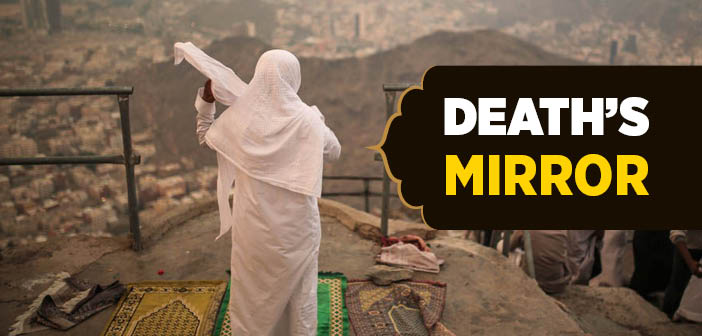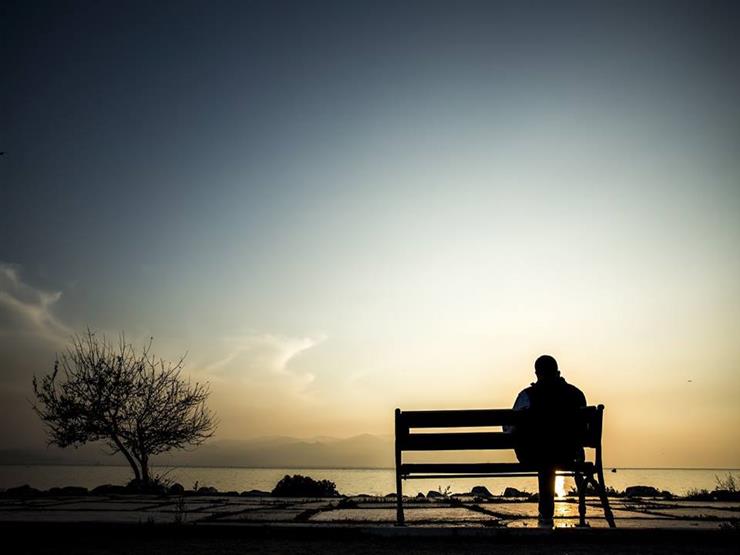What will be asked on the day of judgment? What are the three questions you will be asked in the grave?
The Messenger of Allah (may Allah bless him and grant him peace) states that the first question to be asked on the Day of Reckoning concerning worship will be about the Prescribed Prayer in particular:
“The first thing for which a person will be brought to account on the Day of Judgement will be their Prayer. If it is sound then they will have succeeded, and will have attained salvation, but if it is not then they will have lost and failed.
If something is deficient in their obligatory prayers, Allah, the Most High, will say:
‘Look and see whether My slave has any supererogatory prayers.’ These will make up for what is deficient in their obligatory prayers.
Then all of their deeds will be dealt with in like manner.” (Tirmidhi, Salat, 188/413; Nasa’i, Salat, 9/462)
Among the rights of other human beings, the first to be reckoned on the Day of Judgement will be that of blood that is unjustly shed. The Messenger of Allah (may Allah bless him and grant him peace) says:
“The first of what will be decided between people will be bloodshed.” (Bukhari, Diyat, 1; Muslim, Qasama, 28)
The fact that wrongdoing related to bloodshed will be the first to be judged clearly demonstrates the extent to which the unjust killing and harming of a person incurs Divine anger.
It is an enormous wrong to kill a person because of a worldly matter. It is a much greater sin to intentionally kill a person who one knows to be a Muslim. Allah exalted is He, reveals the tremendous punishment of such a person in the Qur’an as follows:
“As for anyone who kills a believer deliberately, his repayment is Hell, remaining in it timelessly for ever. Allah is angry with him and has cursed him, and has prepared for him a terrible punishment.” (An-Nisa, 4:93)
The Messenger of Allah (may Allah bless him and grant him peace) mentions the other matters which he will be questioned about on the Day of Judgement:
“Indeed, the first favour about which the slave will be questioned on the Day of Judgment is that it will be said to him, ‘Did We not grant your body health, and give you of cool water to drink?’” (Tirmidhi, Tafsir, 102/3358)
“The feet of the children of Adam will not move on the Day of Judgement until they have been questioned about five things:
About their life and how they led it;
Their knowledge and what they did with it (how they acted upon it);
Their wealth and how they earned it;
And what they spent their wealth on;
And their body their youth and where they used it.” (Tirmidhi, Qiyama, 1/2417)[1]
We live in a time referred to as the ‘information age’ where we can access information faster and in more diverse forms than ever before. So much so that ignorance is far from being an excuse. A Muslim who wants to learn about their religion has many avenues through which they can read, research and ask about it. We should not forget that we will one day be questioned about how much gratitude we have for this great blessing, the kind of information we fill our minds with, and the things we preoccupy our hearts with. We must never forget that the foremost and most important learning is to be able to learn our religion correctly and apply it to our lives.
We see many young university graduates who are educated and cultured in a worldly sense but sadly, they are not at all acquainted with the knowledge of the Qur’an and Sunna. They suppose the education they have received to be the most important and useful knowledge. However, knowledge which take someone to Allah, and which does not carry them to comprehension of His power and majesty, may provide a person with status and rank in this world, but it cannot save them from being subjected to eternal loss and ruin.
The highest knowledge is to be acquainted with Allah Almighty and to be a good slave of Him. We should constantly call ourselves to account and look closely and critically at the extent to which knowledge of the Qur’an and the Prophetic Practice has become established in our lives. For it is this for that we have been created and for which we will be held to account on the Day of Judgement.
Allah the exalted declares in a Qur’anic verse:
“Then, on the Day of Resurrection, you will be disputing before your Lord.” (Zumar, 39:31)
When this verse was revealed, the Prophet’s Companion Zubayr (may Allah be well pleased with him) asked:
“O Messenger of Allah, will we repeat our disputes after engaging in dispute in the world?”
The Messenger of Allah (may Allah bless him and grant him peace) replied:
“Yes (until every right holder is given their due).”
Zubayr (may Allah be well pleased with him) then said:
“Indeed, this is a very serious matter.” (Tirmidhi, Tafsir, 39/3236)
For on that Day, there will be no right for which the aggrieved person does not take reprisal.
The Prophet’s Companions showed great diligence not to do anything they would not be able to answer for on the Day of Reckoning and would caution those who showed heedlessness and negligence in this regard.
Abu Hurayra (may Allah be well pleased with him) once encountered a man carrying some milk for sale. Seeing him mix the milk with water, he urged him to act not with the fleeting worldly life in mind, but the eternal life of the Next World, saying:
“What will you have to say when you are asked on the Day of Judgment to extract the water from the milk?” (Bayhaqi, Shu’ab, VII, 231/4927)
The Messenger of Allah (may Allah bless him and grant him peace) was once riding on his camel behind his Companions. Mu’adh ibn Jabal (may Allah be well pleased with him) sought his permission to approach. The Messenger of Allah (may Allah bless him and grant him peace) allowed him to do so. When Mu’adh drew near, they began riding side by side.
Mu’adh (may Allah be well pleased with him) asked:
“My soul be your ransom, O the Messenger of Allah! May Allah take our Trust (our souls) before He takes yours! Were you to depart this world before us, which acts of worship should we observe after you?”
The Messenger of Allah (may Allah bless him and grant him peace) was silent. Mu’adh then asked, “Shall we strive in Allah’s way?”
The Messenger replied, “Striving in Allah’s way is praiseworthy, but there is something that is better for the people.”
(Mu’adh asked,) “Is this fasting or paying the Prescribed Alms (zakāh)?”
The Messenger of Allah (may Allah bless him and grant him peace) answered, “Fasting and paying the Prescribed Alms is also praiseworthy.”
Mu’adh (may Allah be well pleased with him) thus enumerated all the means of goodness for human beings and the Messenger of Allah (may Allah bless him and grant him peace) responded each time saying:
“There is something that is better for the people.”
Mu’adh (may Allah be well pleased with him) asked, “May my mother and father be your ransom, O Messenger of Allah! What is it that is better for the people?”
The Messenger of Allah (may Allah bless him and grant him peace) pointed to his mouth and said, “Speaking well or remaining silent.”
Mu’adh (may Allah be well pleased with him) asked, “O Messenger of Allah, will we be called to account for what we say?”
The Messenger of Allah (may Allah bless him and grant him peace) gently tapped Mua’dh’s knee and said:
“May Allah grant you goodness, O Mu’adh! Will the people be dragged in the Fire on their faces for anything other than the harvests of their tongues! Let whoever believes in Allah and the Last Day speak well or keep silent. For you will prosper through speaking a good word and attain repose by avoiding an evil word.” (Hakim, IV, 319/7774)
This goes to show that on the Day of Resurrection, all the words that come out of our mouths will be asked about. The Messenger of Allah (may Allah bless him and grant him peace) makes mention of certain exceptions in this regard:
“The speech of the children of Adam is against them not in their favour, except for enjoining good, or forbidding evil, or invocation and remembrance of Allah.” (Tirmidhi, Zuhd, 63/2412)
Alongside idle speech and harmful words, there will also be the account for words that should have been spoken but were not.
Abu Hurayra (may Allah be well pleased with him) relates:
“We used to hear (the following spoken amongst the Companions):
On the Day of Judgement, a person with whom a man was not well acquainted will come and seize him by the collar.
The man will say in astonishment, ‘What do you want from me? I do not even know who you are.’
The assailant will say, ‘In the world, you found me engaged in vice and wrongdoing, yet you did not warn or prevent me from evil,’ and will demand his rights.” (al-Mundhiri, al-Targhib wa’l-Tarhib, III, 164/3506; Sulaymân al-RüdanI, Jam’ al-Fawa’id, V, 384)
For that reason, we must not forget that there will be many people we neglected in the world while we had the chance of conveying the message of Islam to them, who may very well seize us by the collar on the Day of Judgement and say:
“You became acquainted with Islam as a result of the sincere efforts of those who came before you. You knew what Islam was and what belief was. Why did you keep it from me? Why did you deny me my chance of deliverance from the Fire?”
Abu ‘Ali ad-Daqqaq (may Allah have mercy on him) suggests that failing to convey the truth in the face of wrong and injustice is a mark of weakness of faith. He says:
“Whoever refrains from speaking the truth is a mute devil.” (Qushayri, Risala, I, 245; al-Nawawi, al-Azkar, p. 335/1030)
The Messenger of Allah (may Allah bless him and grant him peace) has said:
“Whoever among you sees an evil, let them change it with their hand. If they cannot, then let them change it with their tongue. If they cannot, then in their heart – and this is the weakest of faith.” (Muslim, Iman, 78)
For this reason, one should forever keep in mind that they will held to account on a Day when nothing in the name of good or evil will be overlooked, not even an atom’s weight.
[1] Also refer to, Darimi, Muqadimma, 45/543-545; Ibn Abi Shayba, Musannaf, VII, 125/34694; Bayhaqi, Shu’ab, III, 278/1648.
Source: Osman Nuri Topbaş , Journey To Eternity, Erkam Publications





